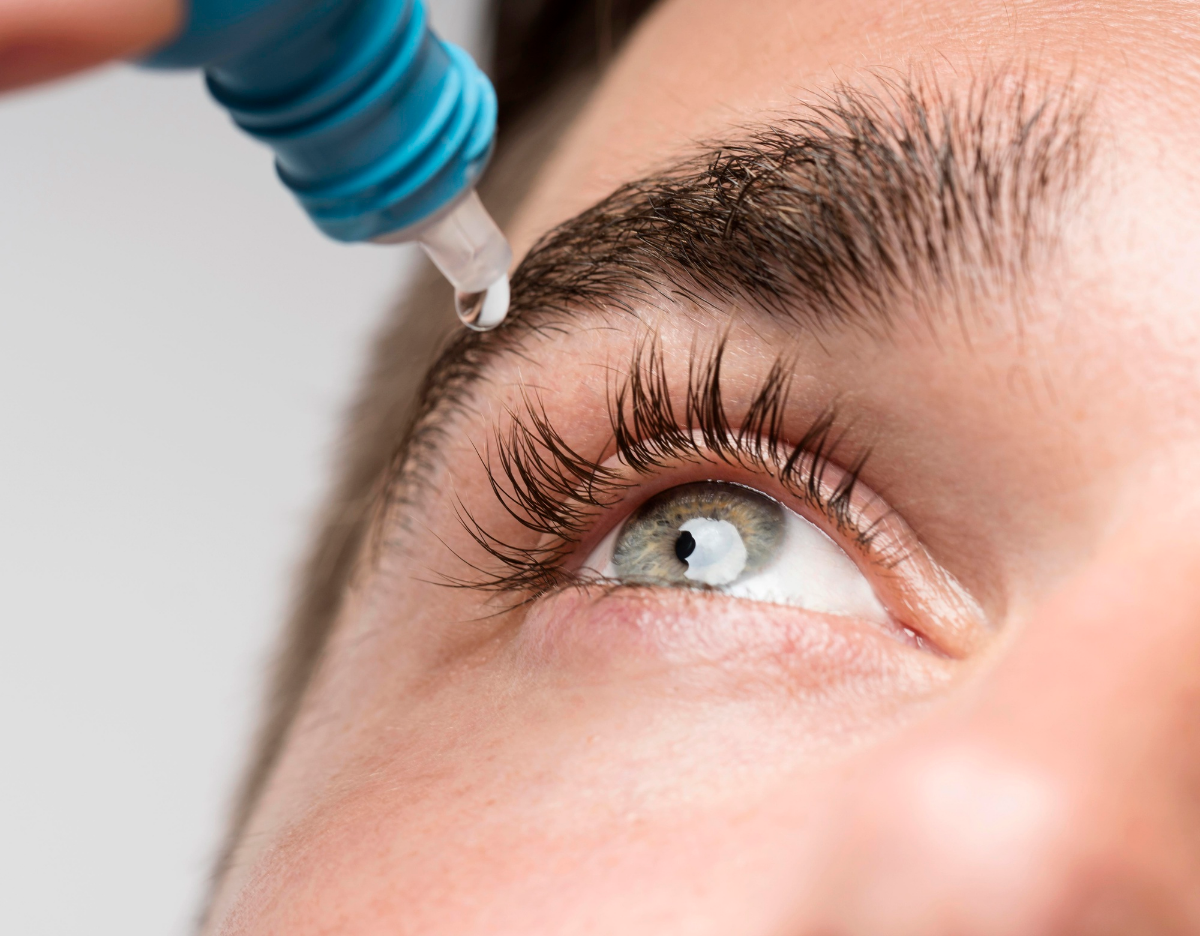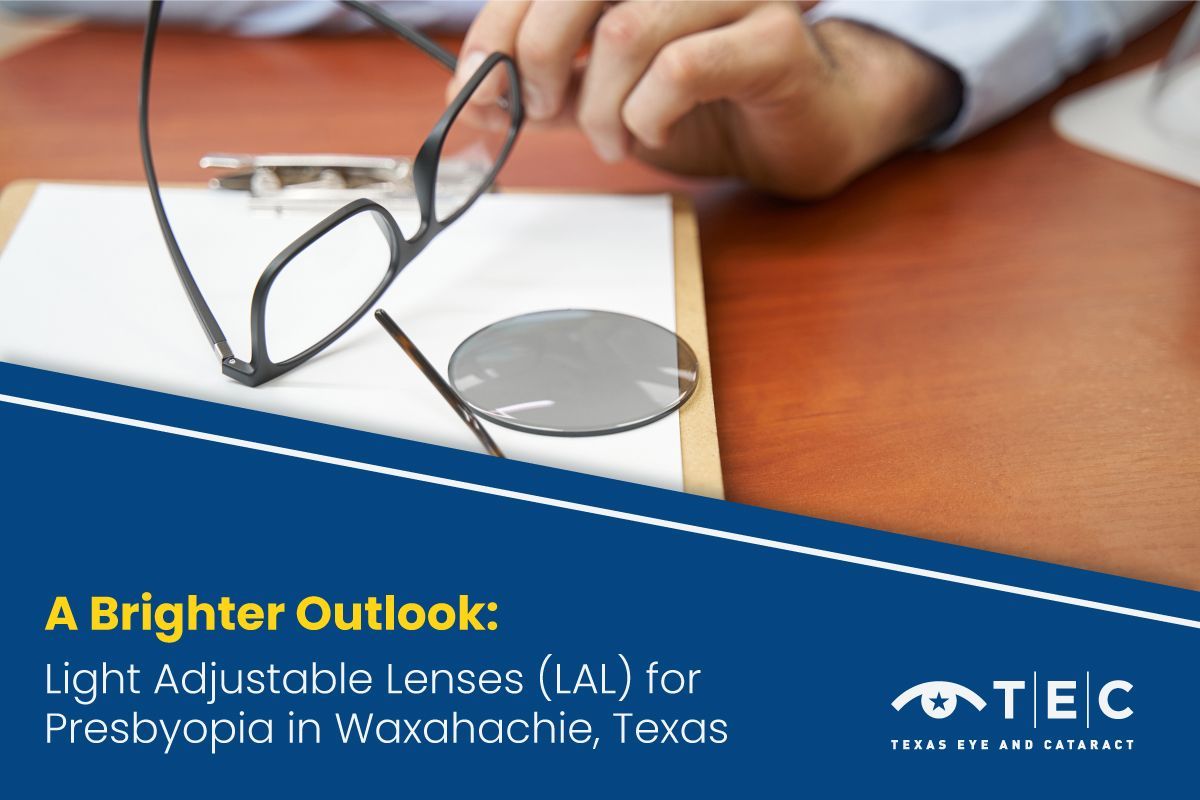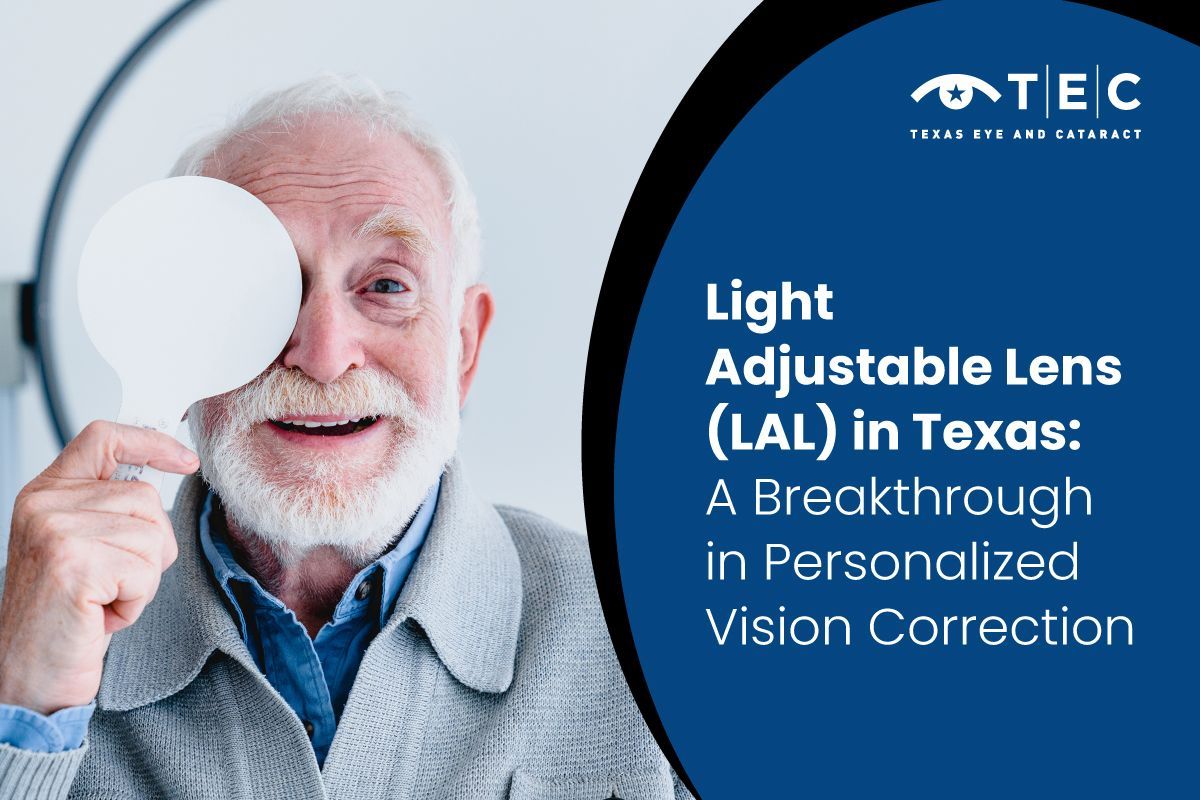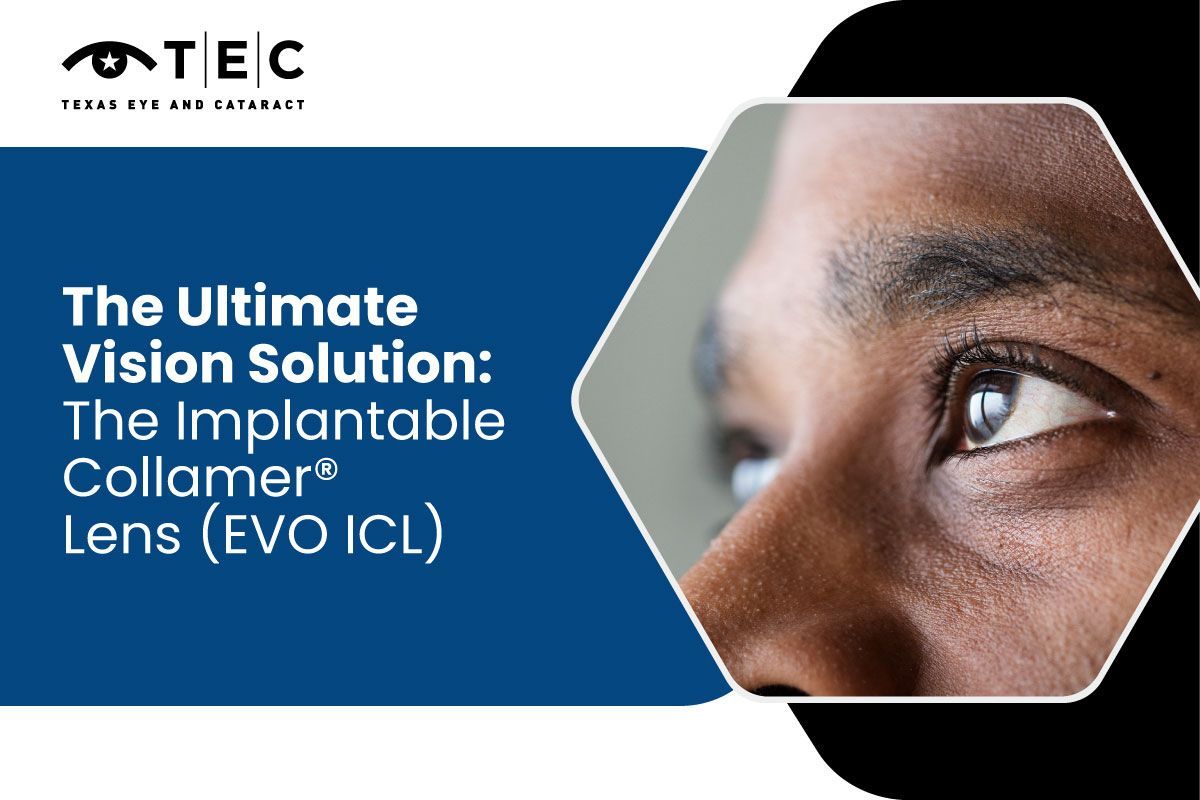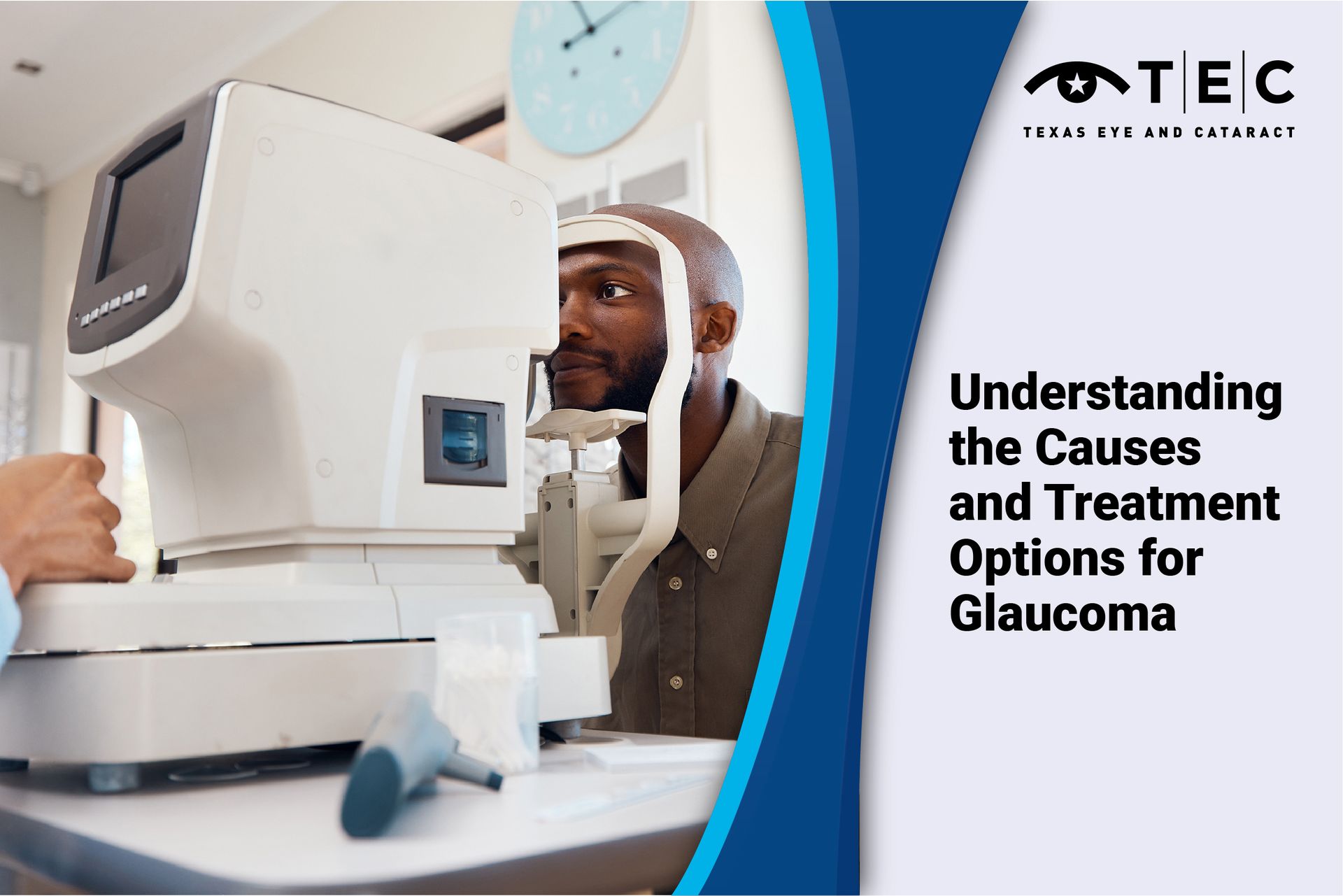Complications of Cataracts and How to Deal with Them
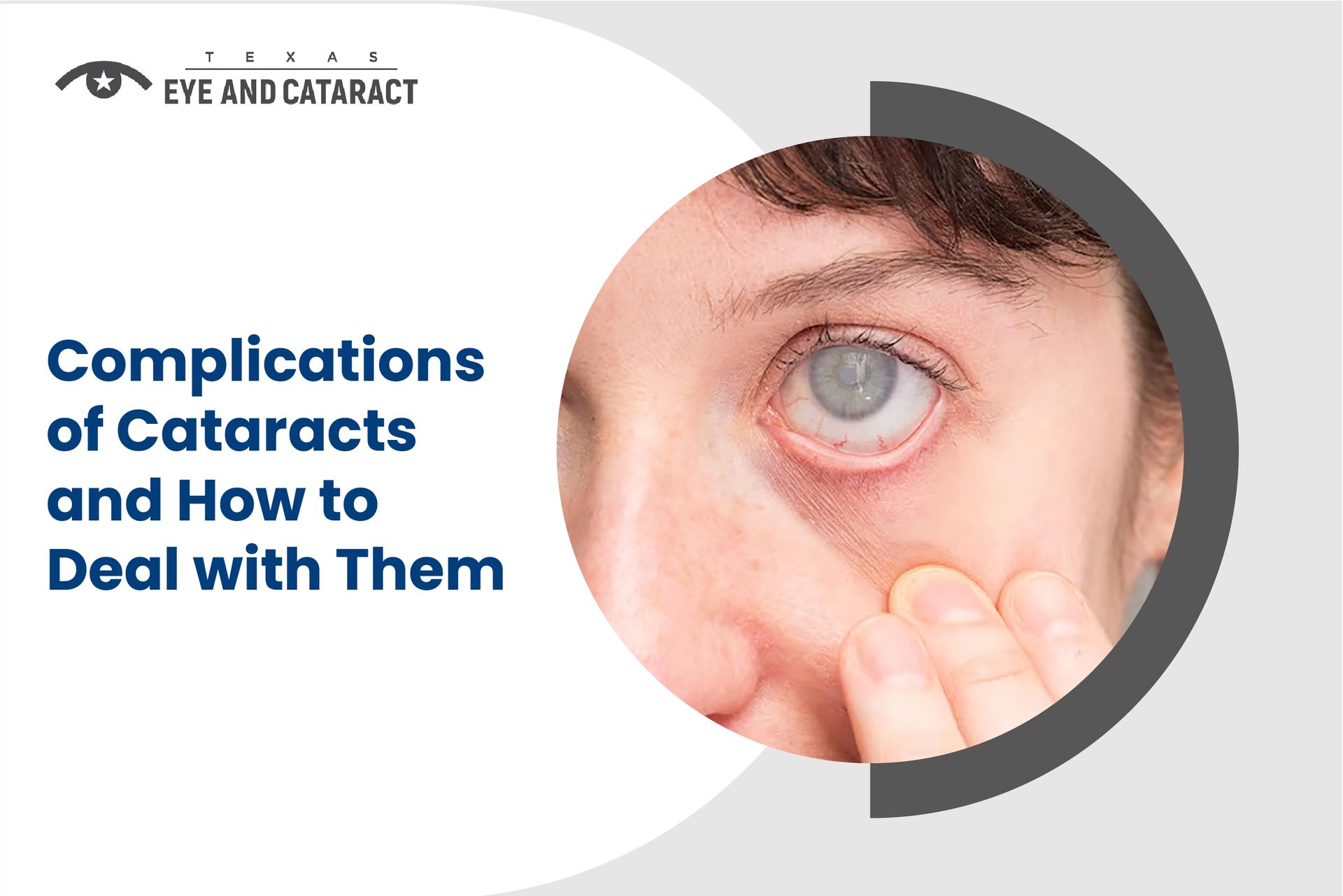
While cataract surgery is a common and effective treatment for the condition, patients should be aware of the potential complications that can occur before and after the procedure. In this blog, we'll examine some of the most common complications of cataract surgery.
Whether you're planning to have cataract surgery or have already undergone the procedure, this article will give you valuable insights to help you manage any cataract surgery complications and ensure the best possible outcome for your eye health.
What are Cataracts?
Cataracts are a common eye disorder that can cause blurred vision and other visual impairments. The condition occurs when an eye's lens becomes cloudy, impairing vision. These problems can develop slowly over time, and many people may not even realize they have the condition until it begins to affect their vision.
Several other factors can increase the risk of developing cataracts, including:
- Diabetes
- Family history of cataracts
- Smoking
- Prolonged exposure to sunlight or radiation
- Certain medications, such as steroids
Overview of Cataract Surgery
In the early stages of cataracts, some people may benefit from wearing glasses with a stronger prescription or using magnifying lenses to improve vision. As the condition progresses, it can cause difficulty reading, driving, and performing other daily activities. Cataract surgery is the most effective way to restore vision for these conditions.
During cataract surgery, the doctor surgically removes the cloudy lens to replace it with an artificial lens or artificial intraocular lens (IOL) to restore clear vision. There are different types of cataract surgery, including traditional and laser-assisted procedures. Bladeless cataract surgery uses a laser to make incisions in the eye, allowing for more precise and accurate removal of the cloudy lens. This outpatient treatment can significantly improve vision and quality of life for those with cataracts.
Normal Cataract Surgery Side Effects
Here are some normal side effects that patients may experience during the recovery period:
- Blurry Vision: It's common to experience blurry vision after cataract surgery, particularly in the first few days following the procedure. This side effect happens because your eye needs time to adjust to the new artificial lens. In most cases, this blurriness will gradually improve, and your vision should become clearer within a few days to a week.
- Discomfort and Sensitivity: Some discomfort and eye pain after cataract surgery are normal after cataract surgery. You may feel an itch, mild pain, and pressure in the eye. You may also experience sensitivity to light or glare. These symptoms should improve as your eye heals, and your doctor may recommend over-the-counter pain relievers or eye drops to help manage them.
- Floaters: Some patients may notice the presence of floaters in their vision following cataract surgery. These tiny specks or threads appear to float across your field of vision. While annoying, they are generally harmless and should eventually fade away.
- Inflammation: Inflammation is a normal part of the healing process and is a common side effect of cataract surgery. Your eye may appear red or irritated, and you may experience mild swelling or discharge. These should subside in a few days.
Symptoms After Cataract Surgery Which Could Indicate Complications
If you experience any of these symptoms after cataract surgery, it's important to contact your eye doctor right away to rule out complications:
- Blurry vision after cataract surgery is normal, but if it persists or worsens, it may indicate an eye infection.
- Mild discomfort or foreign body sensation is common, but severe pain could signal complications. Redness and swelling are common, but worsening over time may indicate complications such as infection or bleeding.
- Light sensitivity for a few days is common, but persistent sensitivity could indicate issues with the healing process.
- If floaters or flashes of light continue or worsen after cataract surgery, they may indicate a retinal tear or detachment.
Complications From Cataract Surgery
Like any surgical procedure, cataract surgery is a safe and effective treatment but comes with certain risks and complications. Some complications can occur early, while others may develop months or years after the surgery. Below is a list of potential cataract surgery risks:
EARLY COMPLICATIONS OF CATARACT SURGERY
1. Infection
Exposure of the eye to the external environment during the surgical procedure makes it susceptible to bacterial or fungal infections. Poor surgical techniques or the use of equipment that has not been properly sterilized can also increase the risk of infection.
Symptoms of infection include redness, swelling, and pain around the eye, as well as a fever. If left untreated, infections can lead to more serious complications, such as endophthalmitis, which can cause permanent vision loss.
2. Bleeding
This early complication of cataract surgery results from damage to the eye's blood vessels during the surgical procedure. Bleeding is more common in patients with certain medical conditions, such as hypertension or diabetes, or those taking blood-thinning medications. In severe cases, bleeding can lead to the accumulation of blood in the eye, which can impair vision and increase the risk of other complications.
3. Swelling
Eye swelling is one of the early complications of cataract surgery due to the inflammation of the eye's tissue. During the process, some fluid leaks out of the lens capsule, causing the surrounding tissues to swell. The swelling can lead to redness, pain, and blurred vision, which may last a few days to weeks.
4. Dislocation of the intraocular lens (IOL)
IOL dislocation is a rare complication that can happen when the artificial lens implant moves out of place, causing vision problems. The main causes of this complication include weak or damaged support structures in the eye, trauma, or inappropriate sizing or positioning of the lens.
LATE COMPLICATIONS OF CATARACT SURGERY
1. Posterior capsule opacification (PCO)
Also known as a secondary cataract, this complication occurs when the cells left behind in the capsule after surgery begin to grow and multiply, forming a cloudy film on the back of the artificial lens. PCO can cause blurred vision, glare, and other visual disturbances that can be especially problematic in bright light or when driving at night.
2. Glaucoma
Glaucoma is another late complication after cataract surgery, though it is rare. Glaucoma happens when the pressure inside the eye increases, causing damage to the optic nerve and vision loss.
3. Retinal detachment
Retinal detachment is a serious complication that can happen when the retina, a thin layer of tissue behind the eye, separates from the underlying tissue. Detachment of the retina may cause flashes of light, floaters, and vision loss. Treatment for this complication may include surgery.
4. Cystoid Macular Edema
This is another rare but serious complication that can occur when fluid accumulates in the macula, the region of the retina responsible for sharp, detailed vision. Symptoms of macular edema include blurry or distorted vision. Patients with diabetes, uveitis or retinal vascular disease may be at a higher risk of developing CME after cataract surgery.
How to Treat Problems After Cataract Surgery
If complications occur after cataract surgery, several treatment options are available. Some of these include:
- Medications: Depending on the type of complication, your doctor may prescribe medications such as antibiotics, anti-inflammatory drugs, or eye drops to help alleviate symptoms and promote healing.
- Additional surgeries: In some cases, additional surgeries may be necessary to address complications such as dislocation of the intraocular lens or retinal detachment.
- Lifestyle changes: Making certain lifestyle changes, such as quitting smoking or managing underlying medical conditions like diabetes, can lower the risk of complications from cataract surgery.
Preventative Measures to Avoid Cataract Surgery Complications
The best way to deal with complications from cataract surgery is to prevent them from occurring in the first place. Some preventative measures include:
Choose an Experienced Surgeon
Look for a surgeon who has performed many cataract surgeries and has a good reputation. You can also ask for recommendations from your primary care doctor, friends, and family members who have undergone cataract surgery.
Get a Comprehensive Eye Exam
Before the surgery, getting a comprehensive eye exam is essential to ensure that you are a good candidate for the surgery. Your doctor will check your eyes and determine the extent of the cataract and other underlying eye conditions. This step will help your surgeon plan the surgery and reduce the risk of complications.
Follow Pre-operative Instructions
In the weeks leading up to surgery, you will receive pre-operative instructions from your surgeon. Follow these instructions carefully to reduce the risk of complications. Instructions may include avoiding certain medications or taking prescribed eye drops.
Proper Follow-up Care
Following your surgeon's post-operative instructions can help reduce complications and make your recovery easier. Attend all follow-up appointments, and seek medical attention immediately if you experience any concerning symptoms.
Choose Expert Care For Your Eyes
Expert eye care can make all the difference in ensuring your vision remains clear and healthy. Texas Eye and Cataract is a top choice for those seeking high-quality eye care! We are a premier Lasik and cataract eye surgery center in Waxahachie, Texas.
Our highly-experienced ophthalmologists are dedicated to providing safe and effective blade-free laser cataract surgery. We understand that cataracts can significantly impact your vision and daily life, and we use advanced laser technology to ensure the best possible outcomes for our patients. Call 469-505-2020 or book a consultation at our online appointment request form.
At Texas Eye and Cataract, we know how important it is to see life with clear vision. We understand that being your best means seeing your best.
Copyright © 2023 Texas Eye and Cataract. All rights reserved.
Quick Links
Eye Care Services
Get In Touch
Copyright © 2022 Texas Eye and Cataract. All rights reserved.





